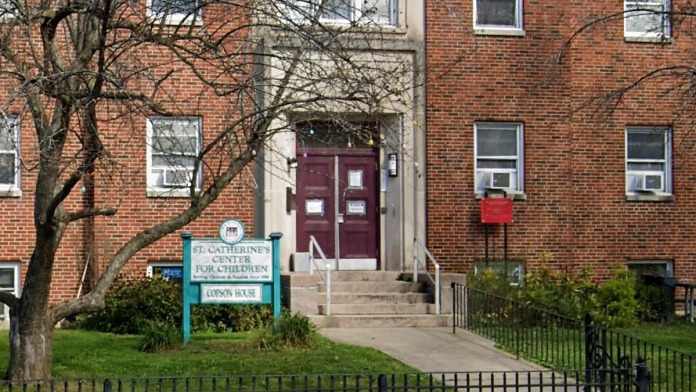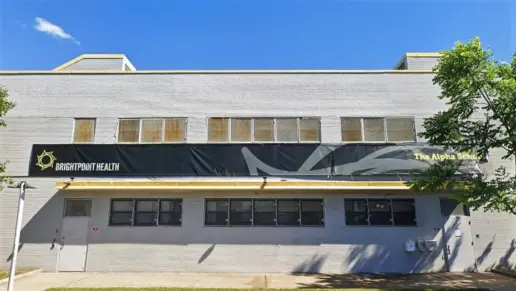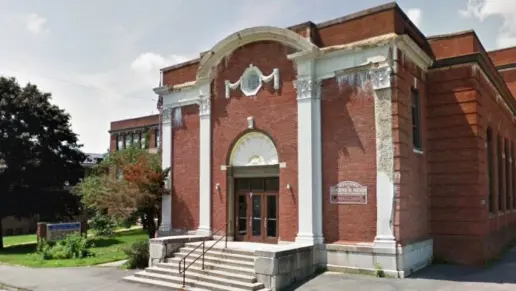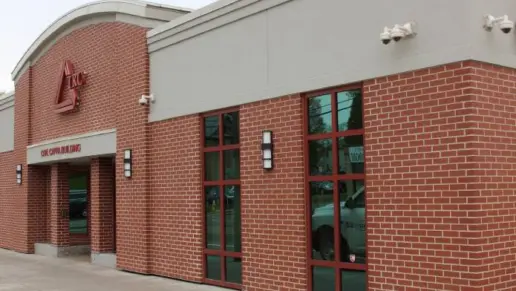About Saint Catherine’s Center for Children – New Scotland Avenue
St. Catherine’s Center for Children - New Scotland Avenue has been a part of Albany, New York, for more than 110 years. They currently have several programs including their residential program at Copson House on New Scotland Avenue. It’s a psychiatric group facility that provides care for as many as 25 children at a time. This home is for children from the age of five to 13. Comprehensive mental health therapy is provided that addresses the emotional, behavioral and trauma-induced issues that many of their young clients face.
One of the main ways they help children is through the services they offer to support and provide resources to the caregivers and adults in their lives who are struggling with mental health or addiction issues. Addiction and mental health treatment are available with evidence-based therapy in individual, family and group settings.
Staff are addiction and mental health professionals with training, experience and credentials to help children, youth and adults learn to identify and deal with the emotions they experience. Many children who attend residential programs at St. Catherine’s are in need of greater support and structure than a family structure can provide. It is an alternative to admission to a psychiatric hospital and is usually followed by a transition to a group home or foster care home environment.
The main goal of residential treatment and every child’s personal care action plan is for them to leave to a loving family home. In an ideal setting, it will be with their own family, but in some situations a child’s best interest is most effectively met by finding them an adoptive supportive and unconditionally loving home.
St. Catherine’s Center for Children tries to meet the needs of all their clients by providing an array of mental, behavioral and emotional support services to children, families and foster caregivers. This may include crisis assessment or emergency mental health stabilization. Ongoing acute and chronic behavior and emotional concerns may be dealt with through psychiatric and mental health evaluations, assessments and residential care with supervision and support 24 hours a day seven days a week. Family, group and personal counseling and specialized treatment are offered as well as recreational and experiential therapy activities.
Education and empowerment are an important part of the treatment programs offered through St. Catherine’s. Qualified educators along with the mental health team help children meet their therapy, education and life goals.
St. Catherine’s Center for Children is a nonprofit, publicly funded organization. Placement in this program is through referral from the Department of Social Services after a comprehensive assessment and screening process.
Latest Reviews
Rehab Score
Gallery

Location
Other Forms of Payment
Private insurance refers to any kind of healthcare coverage that isn't from the state or federal government. This includes individual and family plans offered by an employer or purchased from the Insurance Marketplace. Every plan will have different requirements and out of pocket costs so be sure to get the full details before you start treatment.
Self-pay involves paying for treatment out of your own pocket. You can use savings or credit, get a personal loan, or receive help from family and friends to fund your treatment. If you don't have insurance or your insurance plan doesn't cover a specific program, self-pay can help ensure you still get the care you need.
Financial aid can take many forms. Centers may have grants or scholarships available to clients who meet eligibility requirements. Programs that receive SAMHSA grants may have financial aid available for those who need treatment as well. Grants and scholarships can help you pai for treatment without having to repay.
Medicaid is a state based program that helps lower-income individuals and families pay for healthcare. Medicaid covers addiction treatment so those enrolled can use their coverage to pay for rehab. When a program accepts Medicaid the client often pays very little or nothing out of their own pocket.
Addiction Treatments
Levels of Care
Treatments
Many of those suffering from addiction also suffer from mental or emotional illnesses like schizophrenia, bipolar disorder, depression, or anxiety disorders. Rehab and other substance abuse facilities treating those with a dual diagnosis or co-occurring disorder administer psychiatric treatment to address the person's mental health issue in addition to drug and alcohol rehabilitation.
Mental health rehabs focus on helping individuals recover from mental illnesses like bipolar disorder, clinical depression, anxiety disorders, schizophrenia, and more. Mental health professionals at these facilities are trained to understand and treat mental health issues, both in individual and group settings.
Programs


Clinical Services
Cognitive Behavioral Therapy (CBT) is a therapy modality that focuses on the relationship between one's thoughts, feelings, and behaviors. It is used to establish and allow for healthy responses to thoughts and feelings (instead of unhealthy responses, like using drugs or alcohol). CBT has been proven effective for recovering addicts of all kinds, and is used to strengthen a patient's own self-awareness and ability to self-regulate. CBT allows individuals to monitor their own emotional state, become more adept at communicating with others, and manage stress without needing to engage in substance abuse.
Experiential therapy is a form of therapy in which clients are encouraged to surface and work through subconscious issues by engaging in real-time experiences. Experiential therapy departs from traditional talk therapy by involving the body, and having clients engage in activities, movements, and physical and emotional expression. This can involve role-play or using props (which can include other people). Experiential therapy can help people process trauma, memories, and emotion quickly, deeply, and in a lasting fashion, leading to substantial and impactful healing.
Research clearly demonstrates that recovery is far more successful and sustainable when loved ones like family members participate in rehab and substance abuse treatment. Genetic factors may be at play when it comes to drug and alcohol addiction, as well as mental health issues. Family dynamics often play a critical role in addiction triggers, and if properly educated, family members can be a strong source of support when it comes to rehabilitation.
Group therapy is any therapeutic work that happens in a group (not one-on-one). There are a number of different group therapy modalities, including support groups, experiential therapy, psycho-education, and more. Group therapy involves treatment as well as processing interaction between group members.
In individual therapy, a patient meets one-on-one with a trained psychologist or counselor. Therapy is a pivotal part of effective substance abuse treatment, as it often covers root causes of addiction, including challenges faced by the patient in their social, family, and work/school life.
Trauma therapy addresses traumatic incidents from a client's past that are likely affecting their present-day experience. Trauma is often one of the primary triggers and potential causes of addiction, and can stem from child sexual abuse, domestic violence, having a parent with a mental illness, losing one or both parents at a young age, teenage or adult sexual assault, or any number of other factors. The purpose of trauma therapy is to allow a patient to process trauma and move through and past it, with the help of trained and compassionate mental health professionals.
Staff

Executive Director

CFO

Chief Compliance Officer

Director of Residential Programs

Director of Centralized Intake & Managed Care

Director of the R & E May School

Associate Executive Director of Clinical Services

Associate Executive Director of Homeless Program
Contact Information
401 New Scotland Avenue
Albany, NY 12208


